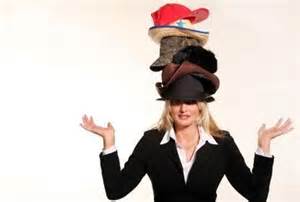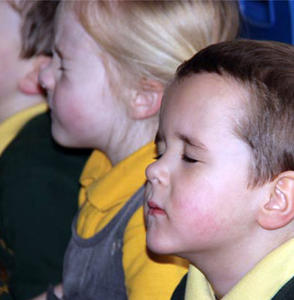REWIRING YOUR BRAIN
/in Anxiety Relief, Awareness, Being Present, Brain Plasticity, Contemplation, Creativity, Happiness, Health, Meditation, Memory, Mindfulness, Neuroscience, Pain Management, Resiliency, Stress Reduction, Wellness Usually we start a new personal development program (whether that be practicing mindfulness, getting physically fit, eating more healthfully) with a great burst of enthusiasm. Yet after the initial “excitement” wears off, and despite our best intentions, we sometimes find we don’t follow through on our commitment. We don’t persist. Perhaps we don’t see immediate results so we become disheartened. Our efforts dwindle or we stop altogether.
Usually we start a new personal development program (whether that be practicing mindfulness, getting physically fit, eating more healthfully) with a great burst of enthusiasm. Yet after the initial “excitement” wears off, and despite our best intentions, we sometimes find we don’t follow through on our commitment. We don’t persist. Perhaps we don’t see immediate results so we become disheartened. Our efforts dwindle or we stop altogether.
And the not so helpful habits…they’re right there. So instead of feeling bad about this, perhaps even a little guilty, what to do? How do we re-engage in this moment our commitment to be more present?
We can remember that we are re-wiring our brain and that this takes time. Mindfulness practices are among the most powerful agents of brain change known to modern science. Practitioners have know this for centuries from their own lived experience: feeling less stress, having a better memory, enjoying greater happiness. And now in a growing number of research studies, we are seeing actual changes in brain structure that confirm these experiences in the lab, in a relatively short period of time. The first study to document meditation-produced changes over time in the brain’s grey matter was led by a team at Massachusetts General Hospital (MGH). Participants in an 8 week program who practiced mindfulness an average of 27 minutes a day at least 6 days a week were shown in MRI imaging to have measurable changes in brain structure, the regions associated with learning, memory, self-awareness and compassion were growing (grey matter increasing), and those regions involved with stress and anxiety were shrinking (grey matter) decreasing.
WEARING TOO MANY HATS?
/in Uncategorized Hat wearing isn’t what it used to be. Prior to the 1950s, nobody would think about going outside without a hat, no matter the season. In fact, your hat, whether you were a nurse, a white collar executive or a gas station attendant told the world a lot about your socioeconomic status and what your occupation was.
Hat wearing isn’t what it used to be. Prior to the 1950s, nobody would think about going outside without a hat, no matter the season. In fact, your hat, whether you were a nurse, a white collar executive or a gas station attendant told the world a lot about your socioeconomic status and what your occupation was.
The phrase “wearing too many hats” emerged relatively recently. In the past century, the pace of our culture and the workplace evolved rapidly, women AND men are now homemakers AND marketing specialists, parents AND business owners. Of course, so much more too, we may coach a little league team and dance the two step on a Saturday night.
While much of this is good and brings meaning to our lives, it also means that we must juggle.
And anyone who has attempted to juggle knows that juggling for any length of time is hard to do! Even if you are good at it soon enough it is very tiring. And as you add more objects, it becomes more stressful. Then what can occasionally happen? It all falls down.
There is where mindfulness can be enormously helpful. When we carve out time for just being, intentional non-doing, we reconnect with who we are at our core.
WEARING TOO MANY HATS?
/in UncategorizedHat wearing isn’t what it used to be. Prior to the 1950s, nobody would think about going outside without a hat, no matter the season. In fact, your hat, whether you were a nurse, a white collar executive or a gas station attendant told the world a lot about your socioeconomic status and what your occupation was.
The phrase “wearing too many hats” emerged relatively recently. In the past century, the pace of our culture and the workplace evolved rapidly, women AND men are now homemakers AND marketing specialists, parents AND business  owners. Of course, so much more too, we may coach a little league team and dance the two step on a Saturday night.
owners. Of course, so much more too, we may coach a little league team and dance the two step on a Saturday night.
While much of this is good and brings meaning to our lives, it also means that we must juggle.
And anyone who has attempted to juggle knows that juggling for any length of time is hard to do! Even if you are good at it soon enough it is very tiring. And as you add more objects, it becomes more stressful. Then what can occasionally happen? It all falls down.
There is where mindfulness can be enormously helpful. When we carve out time for just being, intentional non-doing, we reconnect with who we are at our core.
No matter how we may be feeling in any given moment, we are not simply our roles or our obligations. While it is quite human to define ourselves in this way, it can often limit us, creating a growing sense of imbalance in our lives. Mindfulness widens the lens.
We are not just divorced single parent, primary care giver, one who is always putting out “fires” at work and at home, or task master. When we sit in meditation practice, we put all of that down for a bit.
I invite for the next five to ten minutes to try this: Breathe steadily and naturally, and with each out-breath put each of the “balls you are trying to keep in the air” down-one by one.
Release the striving and to the best of your ability right now, the judging too.
Within this space, something new may arise. Perhaps it’s the knowing that we are more than the sum of our parts. We glean that truth that any given role doesn’t truly define us. What is deepest and most valuable in us can be recalled and recaptured so that we discern what to do next from that perspective.
May you approach the moments of your and those to come with a clarity of purpose and a sense of calm.
A NEW YEAR: WAIT A MINUTE
/in Awaken, Choice, Culture, Life Management, Mindfulness, Presence, Uncategorized Have you got started on your New Year’s resolutions yet?
Have you got started on your New Year’s resolutions yet?
You know the list is usually the same every year for most folks. To the gym, diet, no gossiping, budget better.
For me, it’s less sugar and alcohol. It’s been 5 days already and I’m feeling great! (I was being facetious right there!)
But have you noticed that we often start off these self improvement projects with great enthusiasm and that enthusiasm dwindles as daily life takes over and so do our habitual reactions to stress, coupled with the real hard work of substantive change sets in?
Maybe it’s because we set ourselves up to fail by announcing these sweeping changes without getting ourselves ready, really ready, in this very moment.
NOTICING
/in Uncategorized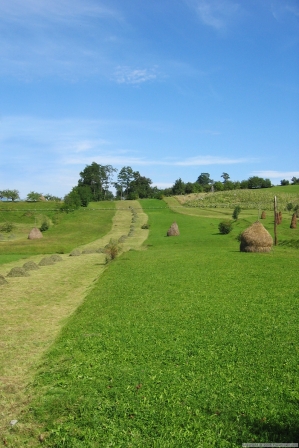 Have you ever noticed that a lot of the time you are just not noticing? For instance, you are driving to the grocery store or to work (both of which you have done a million times), and not remembering when you arrive how you got there. Just traveling on auto pilot, or absorbed in a phone conversation, you have missed the ride. Perhaps you think, “I’ve done this trip so often I could do it in my sleep!” And guess what? In a very real way, you are! Conscious but not truly awake.
Have you ever noticed that a lot of the time you are just not noticing? For instance, you are driving to the grocery store or to work (both of which you have done a million times), and not remembering when you arrive how you got there. Just traveling on auto pilot, or absorbed in a phone conversation, you have missed the ride. Perhaps you think, “I’ve done this trip so often I could do it in my sleep!” And guess what? In a very real way, you are! Conscious but not truly awake.
Our daily tasks of necessary repetition and ritual, whether it brewing the coffee, throwing in another load of laundry, walking the dog, become so automatic that these activities become the things we do between the times we actually are doing something that we are fully engaged in and are aware of. The unfortunate thing is, if we add up all of these moments each day, we are actually “checked out” for a solid portion of our life.
You may recall the internet sensation a few years ago, where participants were asked to watch for how many times three white shirted basketball players came onto a scene. A shocking fifty percent missed seeing a person in a gorilla suit sauntering in, pumping his chest. Even when looking right at him! This phenomenon, coined “inattentional blindness” has been demonstrated time and again.
GOOD NEWS/BAD NEWS: YOU THINK YOU KNOW THE DIFFERENCE BETWEEN THE TWO?
/in UncategorizedWe humans have a tendency to label things as good or bad, wanting more of the former and avoiding the latter at all costs. Yet this labeling is the antithesis of mindfulness. In truth, it is the root cause of much of our suffering and stress.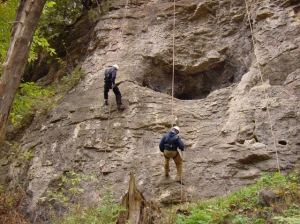
You don’t need to take my word for it. Try it for yourself. Throughout the day, see if you can notice how much of the time you are either liking or disliking almost everything that’s occurring.
For instance, you may be repulsed by the thought of mushrooms. You had mushrooms when you were eight years old and you thought they tasted awful. It might have simply been the way they were prepared or how you were feeling that day, but it doesn’t matter. You now (perhaps decades later) simply say whenever mushrooms are offered, “I hate mushrooms.”
Or you may want to learn a new language. But you say to yourself, “I’m not good at languages” because in high school you struggled in a Spanish class. Once we label an experience, it colors all future experiences that even resemble it slightly. And yet is it necessarily so? Or is it just more thinking that we are inadvertently believing in any given moment?
These assessments, though occasionally conscious are more often unconscious. They are simply reflex reactions based on past experiences. Our judging mind is showing up in the habitual, predictable way as it has countless times before. This is not about fault finding or trying to control our thinking. The process happens so quickly that we are not even aware that we are unaware. These thoughts have become automatic.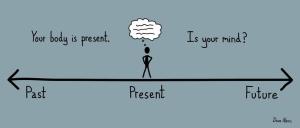
However, we do have a choice. In fact, we have many choices. When we become present to the content of our thoughts, we gain access to our available choices-to respond rather than react to these thoughts. We open up a pause that can generate countless opportunities for new experiences.
I often share the story below with my students in Mindfulness Based Stress Reduction courses. It illustrates how our interpretations of what is happening is directly linked to the level of stress we may be feeling at any given time. And how our interpretations are never the whole story.
There once was a peasant farmer who lived in a remote village in China. His only means of plowing his fields was an ox. When the ox died, he flew into a panic about how he was going to feed his family. The villagers told him to visit the old sage who lived on the outskirts of town. He would know what to do, they said.
The farmer said to the wise man, “I don’t know what to do. My ox has died and my family may starve. This is the worst thing that could ever have happened to me!”
The sage paused, looking him squarely in the eyes and said, “Maybe yes, maybe no.”
The farmer walked away in disbelief. How could he say such a thing when here he was in such distress. He told his family and neighbors that this was no wise man; he didn’t know what he was talking about.
However, the next morning the farmer discovered a strong young horse grazing in a distant field. He trained the horse and in short order, he was able to plow his fields better and faster than before. Not only that, the horse ate less feed than the ox. The farmer thought to himself, “You know, maybe that old man is wise after all. Finding this horse was a stroke of great luck.”
He decided to go the sage and thank him. “You know”, the farmer explained, “I thought you were crazy for telling me that maybe it wasn’t bad luck that my ox had died. But now I know you were right, I found this horse and he plows even better than the ox. It has been the best thing that has ever happened to me.”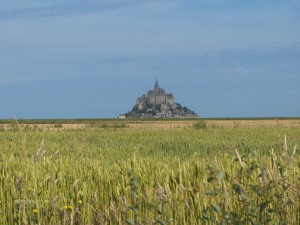
The sage again looked into his eyes and said, “maybe yes, maybe no.”
The farmer, incredulously said, “Are you kidding me?” Shaking his head and walking away, he thought “This guy is nuts! I am not coming here again.”
A few days later, his only son was riding the horse while working and was bucked off. He broke his leg and the horse had to be put down. Inconsolable, the farmer recalled that the sage had indeed spoken wisely and decided to go back to seek advice. After sharing these latest events, he said to the wise man, “Now you have to admit, this is absolutely the worst thing that could have possibly happened to me!!”
And the old man, calmly and lovingly replied, “Maybe yes, maybe no.”
This infuriated the farmer so much, he stormed back to the village and told anyone who would listen how ridiculous the so-called wise man was.
The very next day, troops arrived in the village to take all the able-bodied young men away to fight in the on-going war. His son was the only one who was saved. His broken leg spared him from almost certain death.
 When we can step back and pause with a mind that does not truly know the answer, we can extend our view. We can see potential in all occurrences, gaining a bird’s eye perspective, a wisdom on our own lives.
When we can step back and pause with a mind that does not truly know the answer, we can extend our view. We can see potential in all occurrences, gaining a bird’s eye perspective, a wisdom on our own lives.
GOOD NEWS OR BAD NEWS?
/in Uncategorized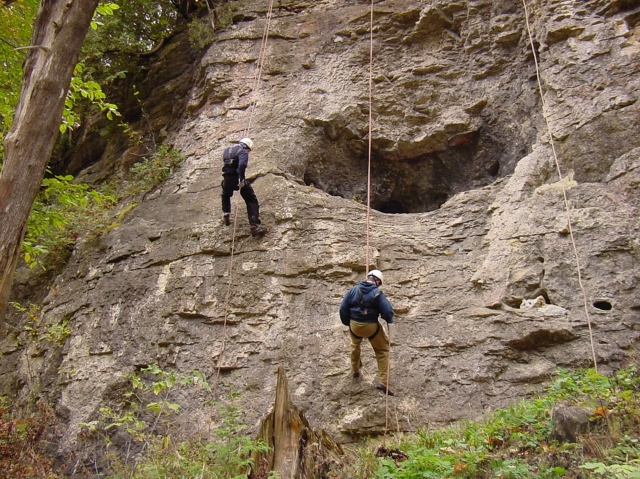 We humans have a tendency to label things as good or bad, wanting more of the former and avoiding the latter at all costs. Yet this labeling is the antithesis of mindfulness. In truth, it is the root cause of much of our suffering and stress.
We humans have a tendency to label things as good or bad, wanting more of the former and avoiding the latter at all costs. Yet this labeling is the antithesis of mindfulness. In truth, it is the root cause of much of our suffering and stress.
You don’t need to take my word for it. Try it for yourself. Throughout the day, see if you can notice how much of the time you are either liking or disliking almost everything that’s occurring.
For instance, you may be repulsed by the thought of mushrooms. You had mushrooms when you were eight years old and you thought they tasted awful. It might have simply been the way they were prepared or how you were feeling that day, but it doesn’t matter. You now (perhaps decades later) simply say whenever mushrooms are offered, “I hate mushrooms.”
GOOD NEWS/BAD NEWS: YOU THINK YOU KNOW THE DIFFERENCE BETWEEN THE TWO?
/in UncategorizedWe humans have a tendency to label things as good or bad, wanting more of the former and avoiding the latter at all costs. Yet this labeling is the antithesis of mindfulness. In truth, it is the root cause of much of our suffering and stress.
 You don’t need to take my word for it. Try it for yourself. Throughout the day, see if you can notice how much of the time you are either liking or disliking almost everything that’s occurring.
You don’t need to take my word for it. Try it for yourself. Throughout the day, see if you can notice how much of the time you are either liking or disliking almost everything that’s occurring.
For instance, you may be repulsed by the thought of mushrooms. You had mushrooms when you were eight years old and you thought they tasted awful. It might have simply been the way they were prepared or how you were feeling that day, but it doesn’t matter. You now (perhaps decades later) simply say whenever mushrooms are offered, “I hate mushrooms.”
Or you may want to learn a new language. But you say to yourself, “I’m not good at languages” because in high school you struggled in a Spanish class. Once we label an experience, it colors all future experiences that even resemble it slightly. And yet is it necessarily so? Or is it just more thinking that we are inadvertently believing in any given moment?
These assessments, though occasionally conscious are more often unconscious. They are simply reflex reactions based on past experiences. Our judging mind is showing up in the habitual, predictable way as it has countless times before. This is not about fault finding or trying to control our thinking. The process happens so quickly that we are not even aware that we are unaware. These thoughts have become automatic.
However, we do have a choice. In fact, we have many choices. When we become present to the content of our thoughts, we gain access to our available choices-to respond rather than react to these thoughts. We open up a pause that can generate countless opportunities for new experiences.
I often share the story below with my students in Mindfulness Based Stress Reduction courses. It illustrates how our interpretations of what is happening is directly linked to the level of stress we may be feeling at any given time. And how our interpretations are never the whole story.
There once was a peasant farmer who lived in a remote village in China. His only means of plowing his fields was an ox. When the ox died, he flew into a panic about how he was going to feed his family. The villagers told him to visit the old sage who lived on the outskirts of town. He would know what to do, they said.
The farmer said to the wise man, “I don’t know what to do. My ox has died and my family may starve. This is the worst thing that could ever have happened to me!”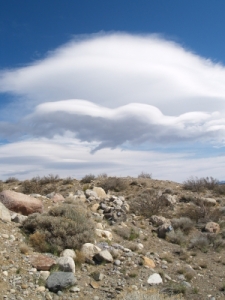
The sage paused, looking him squarely in the eyes and said, “Maybe yes, maybe no.”
The farmer walked away in disbelief. How could he say such a thing when here he was in such distress. He told his family and neighbors that this was no wise man; he didn’t know what he was talking about.
However, the next morning the farmer discovered a strong young horse grazing in a distant field. He trained the horse and in short order, he was able to plow his fields better and faster than before. Not only that, the horse ate less feed than the ox. The farmer thought to himself, “You know, maybe that old man is wise after all. Finding this horse was a stroke of great luck.”
He decided to go the sage and thank him. “You know”, the farmer explained, “I thought you were crazy for telling me that maybe it wasn’t bad luck that my ox had died. But now I know you were right, I found this horse and he plows even better than the ox. It has been the best thing that has ever happened to me.”
The sage again looked into his eyes and said, “maybe yes, maybe no.”
The farmer, incredulously said, “Are you kidding me?” Shaking his head and walking away, he thought “This guy is nuts! I am not coming here again.”
A few days later, his only son was riding the horse while working and was bucked off. He broke his leg and the horse had to be put down. Inconsolable, the farmer recalled that the sage had indeed spoken wisely and decided to go back to seek advice. After sharing these latest events, he said to the wise man, “Now you have to admit, this is absolutely the worst thing that could have possibly happened to me!!”
And the old man, calmly and lovingly replied, “Maybe yes, maybe no.”
This infuriated the farmer so much, he stormed back to the village and told anyone who would listen how ridiculous the so-called wise man was.
The very next day, troops arrived in the village to take all the able-bodied young men away to fight in the on-going war. His son was the only one who was saved. His broken leg spared him from almost certain death.
When we can step back and pause with a mind that does not truly know the answer, we can extend our view. We can see potential in all occurrences, gaining a bird’s eye perspective, a wisdom on our own lives.
THE COMMUNITY OF CONTEMPLATION
/in UncategorizedThis past weekend, I attended the International Symposium for Contemplative Studies in Boston. There were lots of luminaries in the fields of neuroscience, psychology, education, philosophy, and the humanities. Counted among these were the Dalai Llama, Jon Kabat-Zinn, Daniel Goleman, Arianna Huffington, and so many more whose are well known to those in the field, reflecting the explosion really of mindfulness into all aspects of our modern society.
Some presenters shared results of mindfulness programs they have implemented in particular clinical settings, or in business, and several neuroscientists provided the latest in their research findings on what is happening in the brain during contemplative practices and where in the brain it is happening. The goal of all this being the very mission of the conference: to “advance our understanding of the human mind, reduce human suffering, and enhance our well-being.”
Perhaps needless to say, among the 1700 participants, there was a palpable energy, an electric environment eager to engage with this multivalent subject of contemplation. As a long time student and teacher of contemplative practices, it felt akin to my all-time favorite third grade class trip where we went to a historic New England village. I remember waking up that morning excited with the sense that there would be new to things to learn, ideas and practices that made up their way of life that were ancient and those that were contemporary to them in their place and time. Contemporary and contemplation not coincidentally sharing the root, ‘contemp’, which means ‘together with time.’ This idea of being present to the current moment in ways that speak to our interior lives and the life of our communities within the wider society.
This connection is a vital one. While contemplation and contemplative practices have become synonymous with meditation and a sense of personal transformation (and in some traditions this includes prayer as well) AND this can be profoundly true; this definition is only a part of the larger living meaning of contemplation. It must begin with one’s self, but ultimately goes beyond one’s self, to serve.
Contemplation, our modern definition stemming from the Latin ‘contemplatio.’ translates with broad concepts: thinking deeply and at length, examining, meditating, or looking thoughtfully. Yet these roots grow from another word, ‘templum’, which is a piece of ground consecrated for a building or space for worship. These ideas are both prisms of the diamond of contemplation, containing a process personal and worthy, that touches in to our deepest core and brings us together in community for a higher purpose.
Taking this language further back even still we discover that the Proto-Indo-European base ‘tem’ means ‘to cut’ and the base ‘temp’ means to stretch and often referred to a “place reserved or cut out” as a cleared space in front of an altar.
We are cutting down and reshaping ourselves as the early pioneers at that long ago field trip depicted and as a society we continue to cut down and to stretch ourselves and make for us individually and collectively a clearing space.
In the process of observing IN THE MOMENT, whether that be thoughts, feelings, sounds, our breath, not adding any judgment to these observations, we too are paring down and making room for what is worthwhile. As the early pioneers who learned to thrive depicted on that long ago field trip, we too are stretching the limits of what is possible in our human experience.
“The ultimate value of life depends upon awareness and the power of contemplation rather than upon mere survival.”- Artistotle
Tel:508-245-0640 • info@awakenwellnessresources.com
All content @ Copyright - Awaken Wellness Resources



